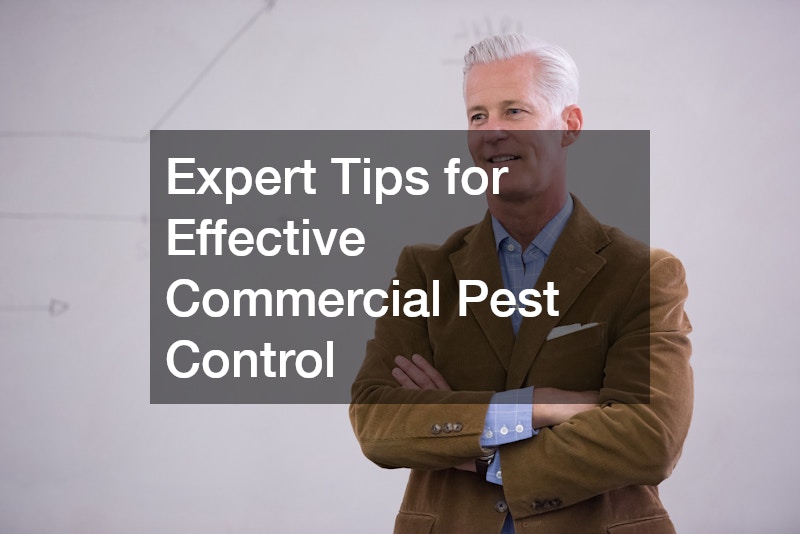Maintaining a pest-free environment is crucial for any business, especially in industries like food service, where health and safety standards are paramount. A proactive approach to commercial pest control ensures compliance with regulations and protects your business’s reputation. Here’s how to implement effective preventive maintenance and manage pest control during renovations.
1. Regular Preventive Maintenance Preventive maintenance is the backbone of effective commercial pest control. Establishing a routine with regular inspections and treatments can help prevent infestations before they become serious problems. Key areas to focus on include:
Exterior Inspections: Regularly check the perimeter of your building for any entry points such as cracks, gaps, or holes. Sealing these openings can prevent pests from entering the premises.
Waste Management: Proper disposal and storage of waste are essential. Ensure all trash bins are securely closed and located away from the building to deter pests.
Routine Cleaning: Maintaining a high standard of cleanliness in food preparation and storage areas reduces the risk of attracting pests. Regular deep cleaning and sanitizing of kitchen equipment, storage areas, and dining spaces are essential.
Equipment Checks: Regularly inspect and maintain HVAC systems, rooftop units (RTUs), and other equipment. These areas can be potential breeding grounds for pests if not properly maintained.
2. Effective Trapping and Monitoring Using traps and monitoring devices is a key part of any commercial pest control strategy. Place traps in strategic locations such as under kitchen equipment, near waste disposal areas, and in any dark, secluded spots where pests may hide. Regularly check and service these traps to ensure they are functioning effectively.
3. Pest Control During Renovations Renovations can disrupt your regular pest control routine and lead to new infestations if not managed properly. Here are some tips to keep pests at bay during construction or renovation work:
Pre-Construction Inspection: Before starting any renovation, conduct a thorough inspection to identify and address any existing pest issues. This can prevent pests from being disturbed and relocating to new areas of your business.
Sealing and Proofing: During renovations, ensure that any newly created openings are sealed immediately to prevent pests from entering. Use appropriate materials to block off entry points and keep the worksite clean and free of debris that might attract pests.
Post-Renovation Treatment: Conduct a comprehensive pest control treatment after renovations are complete. This ensures that any pests that may have been displaced during the work are effectively dealt with.
4. Engaging Professional Pest Control Services While some businesses may handle basic pest control in-house, engaging a professional commercial pest control service can offer a higher level of protection. Professionals can provide tailored solutions based on the specific needs of your business and ensure that all preventive measures are up-to-date with the latest industry standards.
Businesses can maintain a pest-free environment by integrating preventive maintenance and careful management during renovations. This proactive approach to commercial pest control helps protect not only your products and property but also your business’s reputation.
.
